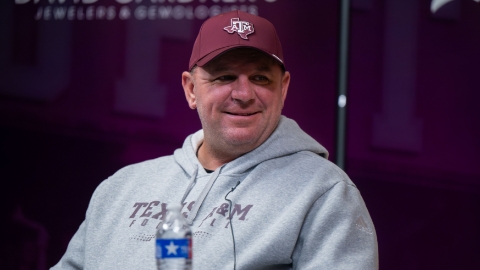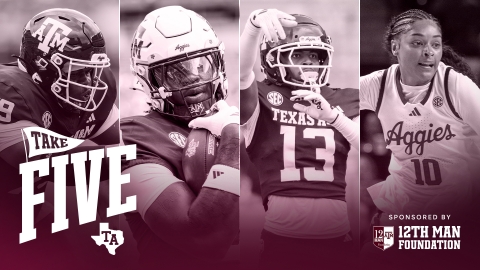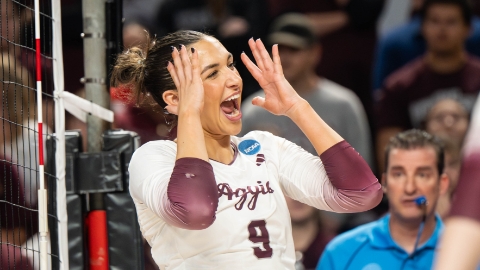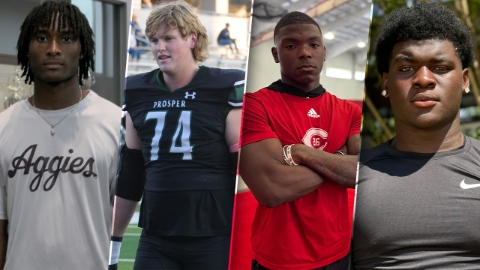Should NCAA be granted limited antitrust exemption in rev-share era?
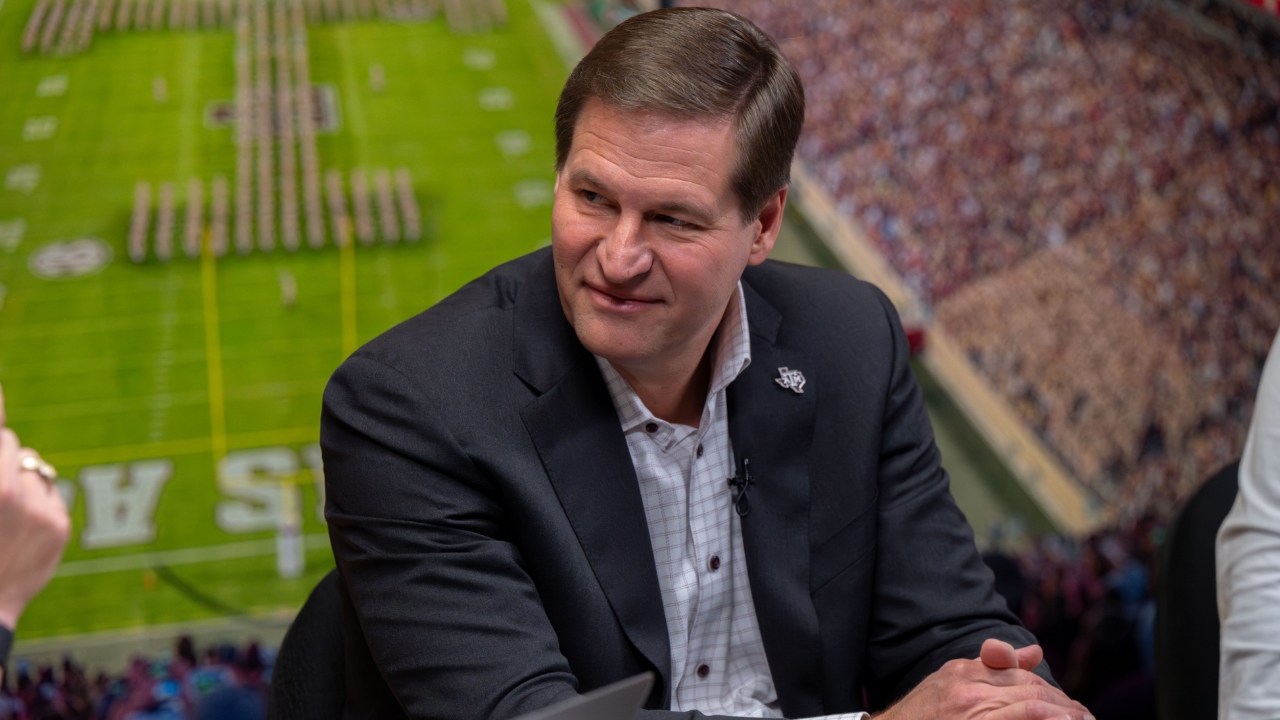
In a world where many questions regarding collegiate student-athlete compensation have been answered, even greater concerns are looming.
On Monday, Texas A&M Director of Athletics Trev Alberts spoke to the media regarding Texas A&M’s future financial plan in the wake of the NCAA v. House settlement.
While the mysteries of athlete compensation have been solved, it is far from over, as the NCAA is still having to deal with a number of lawsuits, and NIL regulation is still a massive concern to athletic directors and coaches across the country. With NCAA president Charlie Baker pushing Congress for a limited antitrust exemption to protect college sports from a slew of lawsuits, Alberts offered a differing opinion.
“We don’t need broad antitrust exemptions,” the Aggie AD said. “We need a skinny NIL bill that will basically do the foundations of what we need to be able to not live in a litigious environment every day, where we’re playing defense. We need to be playing offense.”
Alberts is correct in acknowledging that college sports need reformation in the form of NIL legislation, but with lawsuits piling up and the future of college athletics becoming more unstable with each passing day, is an antitrust exemption needed in order to achieve litigation-free player compensation AND competitive balance?
The reason the House settlement came around is that the NCAA couldn't handle getting sued and losing lawsuits forever.
Alston v. NCAA, Carter v. NCAA, Hubbard v. NCAA, etc. These were almost all losing battles, and every dollar that the NCAA has to spend on legal fees is a dollar not being directly invested into collegiate sports. Despite the efforts to repair damages with this settlement, it is far from perfect. A large downside of this settlement, as it was explicitly said by Judge Claudia Wilken, is that it does not protect the NCAA from future lawsuits.
Aside from the Title IX lawsuits that are already on the table in just the first few weeks, there are a few more aspects of the settlement that people could challenge in court:
- “Anti-competitive” nature of having a salary cap
- NIL Go clearinghouse process and restrictions
This raises the question of how do we avoid these exhausting lawsuits while also ensuring competitive balance with NIL?
Right now, there seem to be two clear solutions:
- The NCAA is granted Congressional protection (antitrust exemption)
- The NCAA and its athletes come to a collective bargaining agreement (CBA)
Let’s break down what each of those pathways would entail.
Limited Antitrust Exemption
A limited antitrust exemption granted by Congress would allow the NCAA to operate in a capacity that shields it from lawsuits. An antitrust exemption would likely allow the NCAA to have ultimate say when it comes to player compensation, NIL compensation, transfer portal regulations and more. It would also allow the NCAA to preserve the concept of “amateurism” and not claim athletes as employees, which would have its benefits.
While this kind of congressional protection could allow the NCAA to set and enforce uniform guidelines to stabilize college athletics without the fear of lawsuits, there are downsides. It could potentially allow the NCAA and its schools to not comply fully with Title IX. This antitrust exemption would also likely take away any and all ability for athletes to negotiate for fair compensation and allow for the NCAA to operate behind a veil with no obligation to be transparent and accountable for its actions.
Collective Bargaining Agreement (CBA)
Collective bargaining through employment is often seen as a middle ground to antitrust exemption that allows for athletes to have greater bargaining power. The NBA and NFL both have collective bargaining that dictates how revenue is split between owners and players, scheduling, drug policies, player safety and more. It is not exactly apples to apples when comparing these professional leagues to college athletics because not every sport generates revenue. Plus, you’re talking about just 1,700 players that play the same sport the way that the NFL is. You’re talking about over 540,000 student athletes across more than 20 sports (both men’s and women’s). This CBA would be much more complicated than anything the professional sports leagues have seen.
However, if every athlete agrees on certain standards, you can distribute compensation fairly without a fear of lawsuits while also agreeing on a more stable middle ground in terms of NIL and transfer portal regulation that would stretch uniformly across every school in the league. There wouldn’t be a need for Congress to write new NIL laws that preempt state laws. The NCAA, with the help of athletes and other representatives, could agree on regulations that would be enforced by the NCAA and difficult to challenge in court because they would be a part of the CBA. Even though Deloitte’s NIL Go clearinghouse does some auditing and regulating now, the process and “fair market” evaluations are not necessarily protected from litigation. Also, it’s not certain that complete competitive balance would be achieved through this, as some schools may not be able to afford paying athletes as “employees” if they have to meet certain minimum wage standards. You’re already seeing Olympic sports get cut from many schools, but a CBA could have the potential to accelerate those deficits and prevent many collegiate athletes from participating in sports at all.
The question is, with the NCAA trying to avoid lawsuits while athletic directors and coaches are demanding clear, uniform and enforced NIL regulations… could a limited antitrust exemption or a CBA be the answer to all of this?
Either way, greater power would be granted to the NCAA (or some other entity) that would allow it to operate without fear of litigation.
It could be a good thing for college sports to have basic uniformity where everyone is happy with their compensation, as well as competitive balance.
However, can we trust the NCAA to operate efficiently, transparently and with the athletes’ best interest in mind?
They have had 119 years to prove that and have, thus far, failed.
